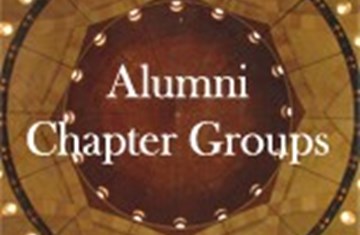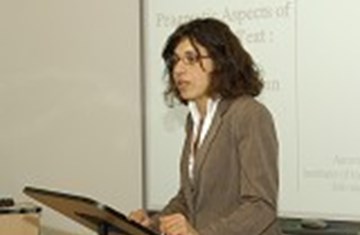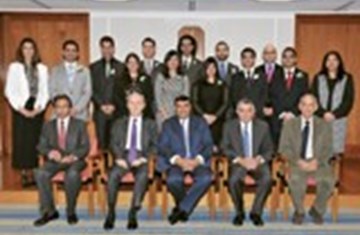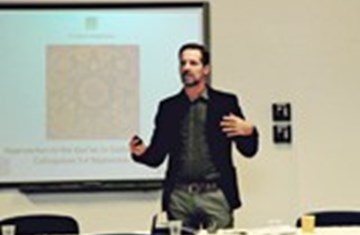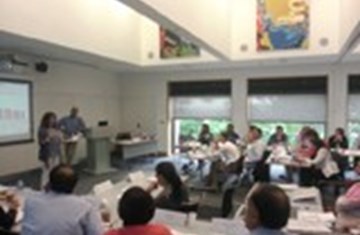IIS Sponsors Qur’anic Studies Workshop in Canada
The Institute of Ismaili Studies sponsored a workshop entitled Approaches to the Qur’an in sub-Saharan Africa which took place in Toronto, Canada in May. The workshop forms part of the Qur’anic Studies Unit’s project on Regional Approaches to the Qur’an and was the result of a collaboration with the Textile Museum of Canada and York University, Canada.
Organised by Prof. Zulfikar Hirji, Associate Professor of Anthropology at York University, the workshop took place at The Textile Museum of Canada alongside their exhibition Magic Squares: The Patterned Imagination of Muslim Africa in Contemporary Culture.
The workshop took a multidisciplinary approach to the subject, gathering scholars from Islamic, African and religious Studies as well as the fields of history, linguistics, anthropology and sociology. Discussions ranged from tafsir in multiple languages, the teaching of the Qur’an by men and women, esoteric understandings of the Qur’an, including the use of the Qur’an as a talisman, and the role of the Qur’an in contemporary popular culture.
M. Abdel Kadir Haidara of the organisation Sauvegarde et Valorisation des Manuscrits pour la Défense de la Culture Islamique (Saving and Valuation of Manuscripts for the Defence of Islamic Culture) gave a public lecture as part of the proceedings on The Manuscript Library of Mamma Haidara which was established in the middle of the 19th century in Bimba village, Mali. As one of the most prominent libraries in the region, it houses manuscripts belonging to all fields of Islamic studies from the Qur’an, hadith, jurisprudence, literature, to astrology and grammar.
In this regard, Rahim S. Rajan, a GPISH graduate, currently with the Bill & Melinda Gates Foundation's Special Initiatives group and Harlan Wallach Head of Northwestern University’s Advanced Media Production Studio, also gave a presentation as part of the workshop on the digitalisation of manuscripts in Mali. A concert of African Muslim devotional music by the Waleed Abdulhamid Ensemble concluded the academic event.
The Workshop and related events were well attended by scholars from various universities in the region, IIS alumni and members of Toronto’s diverse ethnic and religious communities.

